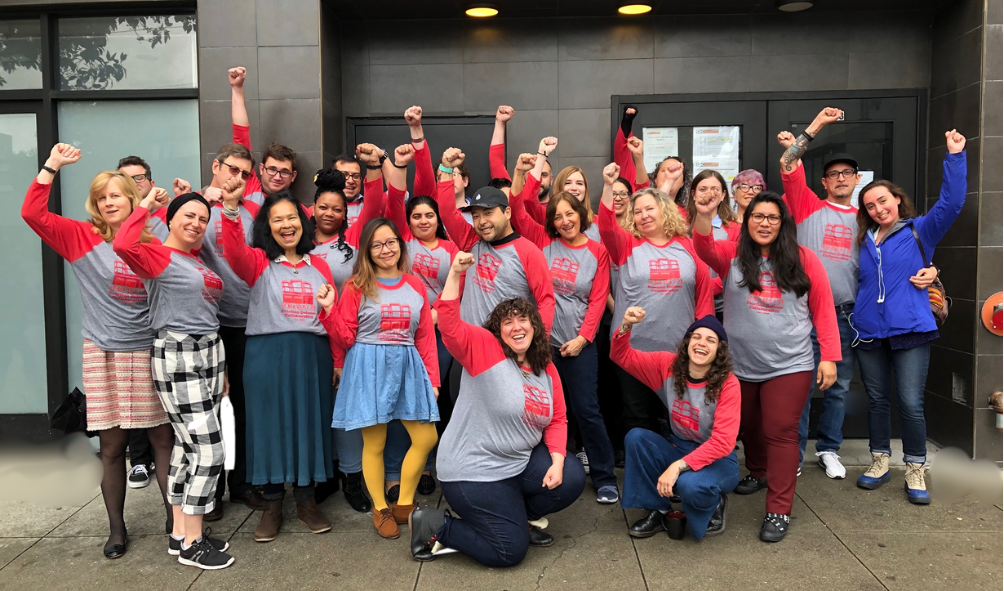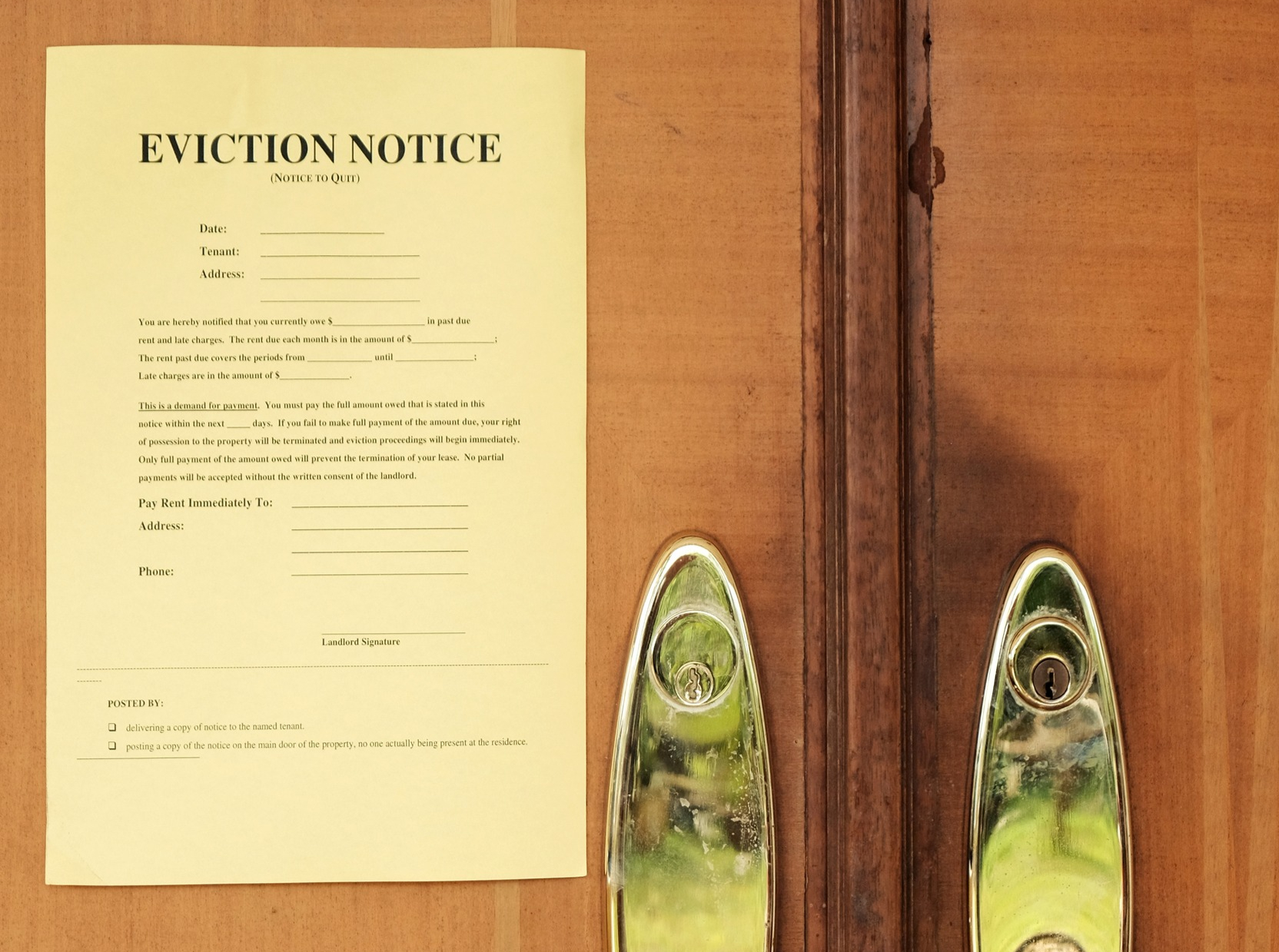Finding a new apartment after an eviction in San Francisco can feel overwhelming, especially in the city’s competitive rental market. High rent prices, strict tenant screening, and growing demand make securing housing difficult—but not impossible.
The good news is that you can rebuild your rental history and find stable housing with the right strategy.
In this guide, we’ll cover:
- How evictions affect your ability to rent
- Where to find eviction-friendly apartments in San Francisco
- How to strengthen your rental application
- Tenant rights and legal protections
- Resources for rental assistance
This guide will give you the tools to secure housing and move forward, whether you’re looking for second-chance apartments, private landlords, or government programs.
How Evictions in San Francisco Affect Rental History
An eviction can make finding housing more challenging, but it does not define your future. Understanding the process can help you navigate it and improve your chances of securing a home. Here’s what you need to know:
How Long Does an Eviction Stay on Your Record?
An eviction judgment can remain on your rental history and credit report for up to seven years. Most landlords and property management companies will see it during a background check, which can make renting more difficult. However, this is only true if the judgment is entered within 60 days of the lawsuit’s commencement. If the tenant does not respond on time to service of the unlawful detainer (eviction lawsuit), they will quickly get a default judgment, which can blemish their record for up to seven years. If the tenant files a timely response, even if they ultimately lose and a judgment is entered against them, this is unlikely to happen within 60 days, and the eviction will remain masked.
Even if the eviction does not appear on credit reports, unpaid debts (like rent or utilities) associated with it can be reported to credit bureaus. If the debt is sold to a collection agency, it will appear on your credit report as an unpaid bill, which can blemish your credit.
How Do Evictions in San Francisco Impact Your Ability to Rent?
Many landlords consider eviction records a red flag due to concerns about missed payments, lease violations, or potential legal issues. This may result in:
- Higher security deposit requirements. However, under new California laws, a landlord can charge no more than one month’s rent as security, or twice the rent if they are a small landlord, owning at most two properties with no more than four units. A tenant’s eviction record does not change this.
- Rejections from apartments with strict tenant screening policies.
- Challenges qualifying for rental assistance programs.
However, an eviction doesn’t mean you can’t find housing—it just requires the right approach.
Can an Eviction Be Removed from Your Record in San Francisco?
Yes, in some cases, you may be able to seal or expunge an eviction from your record, especially if:
- The case was filed in error
- The eviction was dismissed or settled
- You can prove extenuating circumstances
To start the process, you’ll need to petition the court. A tenant lawyer can help you navigate the process and improve your chances of success.
Remember that most eviction lawsuits in California are “masked” automatically as a matter of law. This means you do not need to be concerned about an eviction creating a public record unless a judgment was entered against you within the first 60 days after filing.
How Do Landlords Check for Evictions?
Most landlords screen tenants by checking:
- Tenant screening databases that track rental history (up to 7 years)
- Credit reports (evictions don’t appear, but unpaid rent in collections does)
- Court records for past unlawful detainer (eviction) filings
If you have an eviction on record, some tenant advocacy groups can help dispute errors or negotiate with landlords to improve your rental prospects.
Are There Programs That Help Tenants with Past Evictions Find Housing?
Yes! If an eviction is making it harder to rent, these programs may help:
- Nonprofit Housing Organizations – Groups like Catholic Charities SF and Compass Family Services help connect tenants with housing placement services.
Some landlords offer second-chance renting programs—ask nonprofits about landlords who accept tenants with past evictions.
How Does an Eviction Affect Your Credit Score?
An eviction itself does NOT appear on your credit report. However:
- Unpaid rent sent to collections can lower your credit score.
- A judgment from an eviction lawsuit may appear in public records, especially if it resulted from a default, which some landlords check.
If you have unpaid rent, consider negotiating a settlement or payment plan to prevent it from affecting your credit long-term.
Do All Landlords Reject Tenants with an Eviction on Record?
No! Not all landlords automatically deny tenants with an eviction. Some may approve you if you:
- Provide a co-signer
- Show proof of stable income & good rental history since the eviction
Be upfront about your situation and provide letters of recommendation from past landlords or employers to strengthen your rental application.
Where to Find Apartments That Accept Evictions in San Francisco
Evictions can make renting more difficult, but some landlords and programs offer second chances. You can find housing options that work for you with the right approach and resources. Here’s where to start:
Second-Chance Apartments
Some landlords specialize in second-chance leasing, offering rentals to tenants with evictions or poor credit. These apartments are designed to give renters a fresh start.
Recommended Resource:
- San Francisco Second Chance Apartments – A service connecting renters with landlords who overlook past evictions.
- Ways2Rent – Provides second chance rental services for individuals with evictions, broken leases, and low credit scores.
- Second Chance Locators—This service assists renters with bad credit, broken leases, evictions, and criminal histories in finding apartments nationwide through the Second Chance Program.
- The Guarantors – Helps renters qualify for the rental they want by providing guarantees to property managers, offering a second chance to secure their dream home.
Private Landlords vs. Property Management Companies
Private landlords tend to be more flexible than large property management companies. They may be willing to overlook an eviction if you:
- Show proof of stable income
- Provide strong references from previous landlords or employers.
Conversely, property management companies typically have strict screening policies and may automatically reject applications with eviction records.
Finding Private Landlords Who Accept Evictions
- Craigslist – Many independent landlords list rentals here, often with more flexible requirements.
- Facebook Marketplace – Local rental listings where you can communicate directly with landlords.
- Zillow Rental Listings – Some private landlords use Zillow, and you can filter listings by owner-managed properties.
Overcoming Property Management Screening Barriers
- The Guarantors – A lease guarantee service that helps renters with past evictions get approved.
Affordable & Low-Income Housing Programs
Specific affordable housing programs have more lenient rental criteria and may accept tenants with past evictions in San Francisco.
- Housing Choice Voucher Program (Section 8) – This program provides rental assistance to low-income individuals. It is currently closed to new applicants but periodically opens up with a lottery.
- Direct Access to Housing (DAH) – A San Francisco program helping individuals secure permanent supportive housing.
- Compass Family Services – Offers transitional and emergency housing assistance for families facing eviction.
- San Francisco Below Market Rate (BMR) Housing Program – This program offers affordable rental units with income-based pricing and has a waitlist.
- Homelessness & Supportive Housing (HSH) – Helps individuals at risk of eviction find stable housing.
- Homekey Program – Converts hotels into long-term affordable housing for people facing homelessness.
- Catholic Charities SF and Home Match – Provide rental assistance and housing services for low-income residents.
How to Strengthen Your Rental Application After Evictions in San Francisco
With the right approach, you can improve your chances of securing an apartment even if you have an eviction on your record.
Be Honest About Your Eviction
If a landlord asks about your eviction, transparency is key. Explain the situation, highlight how your circumstances have improved, and provide supporting documents such as proof of income or letters of recommendation.
Build a Strong Rental Application
To improve your chances of approval, prepare a renter’s resume that includes:
- Proof of income (pay stubs, tax returns, or bank statements).
- A letter of explanation addressing the eviction and your financial stability.
- References from previous landlords or employers.
- A co-signer or guarantor, if possible.
Improve Your Credit Score
If your eviction impacted your credit, take steps to repair your score by:
- Paying off any outstanding rental debt.
- Avoiding late payments on current bills.
- Keeping credit utilization low.
Legal Rights & Tenant Protections in San Francisco
San Francisco has strong tenant protections to prevent discrimination and unlawful eviction practices.
Know Your Tenant Rights
- Landlords cannot reject tenants based on past evictions if it violates fair housing laws.
- Renters have the right to legal representation if facing eviction.
Helpful Organizations:
- Eviction Defense Collaborative (EDC) – We provide legal support and rental assistance.
- San Francisco Tenants Union (SFTU) – This offers tenant rights education and counseling.
- Bay Area Legal Aid – Assists low-income tenants with eviction-related cases.
Emergency Rental Assistance Programs
If you’re struggling with rent or facing eviction again, rental assistance programs may provide financial relief.
- San Francisco Emergency Rental Assistance Program (ERAP) – This helps tenants cover overdue rent payments.
- Seasons of Sharing Fund – This fund offers one-time financial aid for rent and utilities.
- EDC’s RADco – We help San Francisco tenants who have fallen behind on rent due to temporary financial setbacks.
Frequently Asked Questions (FAQ)
Navigating eviction and rental challenges can be overwhelming, but you’re not alone. Here are answers to some of tenants’ most common questions about evictions, rental history, and finding housing in San Francisco.
Can I rent an apartment in San Francisco with an eviction on my record?
Yes! While it may be more challenging, many landlords, second-chance apartments, and assistance programs can help you secure housing.
How can I improve my chances of getting approved for an apartment?
- Get a co-signer or guarantor.
- Provide proof of stable income.
- Apply with private landlords instead of property management companies.
Are there legal protections for renters who have evictions in San Francisco?
Yes! Tenant advocacy organizations like EDC provide free resources to help tenants understand their rights.
Do all landlords check eviction history?
Most large property management companies run the tenant screening reports, but private landlords or smaller rental owners may not use these services and are more likely to work with you.
Can I still get rental assistance if I have an eviction?
Yes! Programs such as Section 8, Direct Access to Housing (DAH), and Compass Family Services provide rent and housing aid to tenants with past evictions. Don’t hesitate to apply!
Key Takeaways
Finding apartments after evictions in San Francisco can be challenging but not impossible. You can secure a stable home and rebuild your rental history by searching for second-chance rentals, working with private landlords, using financial aid programs, and strengthening your rental application.
Next Steps:
- Contact us for legal advice.
- Apply for our rental assistance program if needed.
- Be proactive—start your apartment search today!
Need personalized guidance? Contact us today for expert advice and eviction support in San Francisco.




